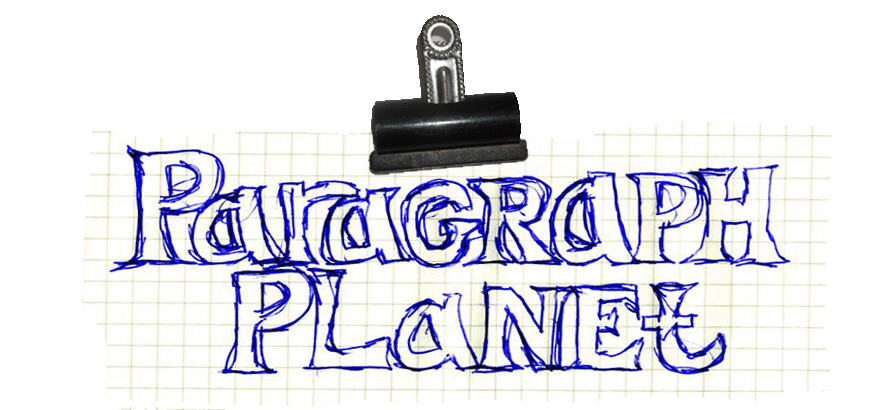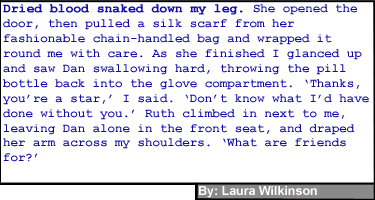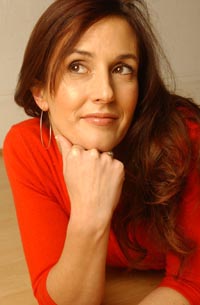
Laura Wilkinson Interview

Laura talks to Paragraph Planet about her new novel 'Public battles, private wars'

1 - Tell me about your latest novel 'Private battles, private wars'
It's a story of friendship and love, enemies and fighting. And food. But mostly it's about being the best you can be no matter how dire the circumstances or the odds against you. As my central character and narrator Mandy says at the opening of the novel: 'Sometimes, we need enemies more than we need friends. Sometimes, we find the best of ourselves in the strangest places, during the strangest times.'
Set against the backdrop of the 1984/85 Miners' Strike, Mandy is a young wife who lives in a (fictional) Yorkshire pit village. She flunked out of school, fell pregnant at sixteen and at twenty-three is married to a good-looking drinker with four kids. She's not much good at anything, other than baking cakes. Or so she thinks. When a childhood friend returns to the village - glamorous, clever Ruth - Mandy thinks she's found a mate and a role model, but Ruth isn't all she seems and neither is her Falklands war hero husband Dan. I'm not going to say any more because, of course, I hope you'll read it!
How did you find writing a period novel, albeit a recent period, the 80's?
I feel old hearing it described that way! I do remember the 80s, though not in anywhere near enough detail as is necessary to write an entire novel let alone a convincing one, so I had to do a fair chunk of research. The initial idea for the story came about when I was researching another story idea set during the era so I had a sense of the period – the music, fashions, TV shows and so forth. For this story I had to deep deeper and it was fun transporting myself back in time. But really, as writers we transport ourselves to the landscape of our characters whether they are contemporary or historical, from our world or more fantastical realms, so in that sense I didn't experience anything radically different during the writing process, if that makes sense?
What's your favourite stage of the writing process?
A couple of years ago I would have said the editing process - primarily because I spent so much of the first draft wondering if I was even capable of completing a novel. Now I'd say possibly getting that first draft down - when it's going well!
I love the roller coaster ride of the initial draft, when I have a rough idea of the themes I'd like to explore and where I'd like my characters to end up but everything is open to the possibility of change; the element of surprise is there. It's such a fantastic feeling when characters take you to places you'd never dreamed of before you started, or characters who begin in your mind as walk-ons start demanding more time and space.
All that said, I do still enjoy the rewriting and editing; the moulding of something raw and a bit messy into something, hopefully, rather lovely or sad, or thrilling or whatever. And that's just as well because writing really is all about re-writing, so if you hate rewriting then it's going to be tough. Perhaps it's easier for me to tell you my least favourite part of the process - the proofing. I loathe it, and though manuscripts are proof read by your publisher it is also something that authors are asked to do.

How important is it for a writer to have a strong digital presence?
My publisher would say very; I'm not so sure; I think it depends. Accent, my publisher, is an independent, award-winning press and they do really, really well with digital sales, and though they don't insist, they do like and encourage authors on their list to have a Facebook author page - they advertise on Facebook and it seems to work. However, there are plenty of established authors who don't tweet or do Facebook or LinkedIn or any of the myriad social networks and forums, but the key is established. Unless there is a massive marketing budget, as a new author it's definitely important to have some digital presence. The advent of self-publishing platforms like KDP has been transformative for so many writers but competition is fierce and selling books is possibly harder than ever. It's just as well we're reading more than ever. A digital presence can help your voice to be heard above the noise.
Any tips for aspiring writers?
Gosh, there's so much advice around I'm not sure if mine will add anything new, but here goes!
Read and read and read, especially, but not exclusively, in your chosen genre. Read as many 'how to' books as you can stomach. You won't agree with or use all the advice but you might pick up a few gems and they can sustain you. Remember that rules are meant to be broken, but you must understand the rules before you break them.
Write. Don't think about it, don't talk about it; do it - don't wait for the muse to descend; she probably won't. Banish your internal critic while writing your first draft. Write with your heart; edit with your head.
When you feel ready, share your work with trusted friends - readers and/or writers. Not your mum. She loves you; she'll think it's marvellous. It probably isn't. You need supportive, knowledgeable colleagues. If you're studying for a degree or MA you should find plenty; if not join a writers' group or seek professional advice from people like me. I work freelance as an editor - developmental and copyediting - and through Cornerstones Literary Consultancy.
Enjoy! And when you’ve completed your first draft remember to crack open the champagne, or your celebratory poison of choice. Writing a novel is a huge achievement, and if you’re anything like me, nothing will beat the feeling of seeing a completed manuscript on your dining room table. You did it!
Thanks so much for having me over at Paragraph Planet; I do enjoy being here. It's such a terrific site.
Visit Laura's website here. Buy Laura's book from Accent Press or from Amazon .
Paragraph Planet is a creative writing website which has been publishing one 75-word paragraph every day since November 2008. Famous authors, aspiring writers and occasional dabblers have all got involved, submitting a mixture of twist-in-the-tale flash fiction, evocative short, short fiction, openings of published novels or brief moments captured. Get involved here. You can read over 2000 examples in the archive section. There are also interviews with some of the published authors who have submitted to the site, as well as an authors page in which you can read an example paragraph from all authors who've submitted, and also link to dedicated pages with more info about regular contributors. There's also a Blog Directory of authors who've contributed to the site.

